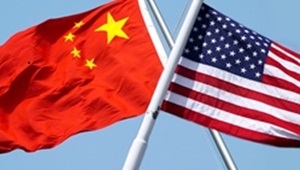China and the United States have agreed to roll back mutually imposed tariffs in phases, in signs that end is in sight for the extended trade war. The two parties, however, have not set a time frame for the proposed tariff reduction.

The agreement was reported to have been reached during talks aimed at working out details of a "Phase 1" deal announced on 12 October, amidst a Chinese push for lifting all tariffs.
Chinese negotiators demanded roll back of the 15 per cent tariffs that the United States imposed on about $125 billion worth of Chinese goods on 1 September. China also sought relief from the 25 per cent tariffs on about $250 billion of imports, ranging from machinery and semiconductors to furniture, imposed earlier.
Chinese commerce ministry spokesman Gao Feng said on Thursday that tariff roll-back is key to any bilateral trade agreement, adding that both must simultaneously cancel some tariffs on each other's goods to reach a “phase one” trade deal.
"If the two sides achieve a 'Phase 1' agreement, then, based on the content of that agreement, tariffs already increased should be cancelled at the same time and by the same rate," Gao said at a news briefing.
The interim trade deal is expected to include a US pledge to scrap tariffs scheduled for 15 December on about $156 billion worth of Chinese imports, including cell phones, laptop computers and toys, he said.
“The trade war started with tariffs, and should end with the cancellation of tariffs,” Feng said.
“In the past two weeks, the lead negotiators from both sides have had serious and constructive discussions on resolving various core concerns appropriately. Both sides have agreed to cancel additional tariffs in different phases, as both sides make progress in their negotiations,” he said.
President Donald Trump agreed to postpone a planned tariff hike while lower-level officials hammered out details. Trump said China agreed to buy up to $50 billion of American farm goods. Beijing has yet to confirm the scale of its commitment.
China's imports of American soybeans and other goods tumbled 26.4 per cent in the first nine months of this year following tariff hikes and importers looked elsewhere for supplies.
Trump has now invited Chinese President Xi Jinping to oversee the signing of a deal.
Governments of the two biggest global economies have raised tariffs on billions of dollars of each other's goods in the fight over China's trade surplus and cheating on technology.
The US-China trade war had weighed on trade worldwide, slowed economies worldwide and depressed global economic growth.





















